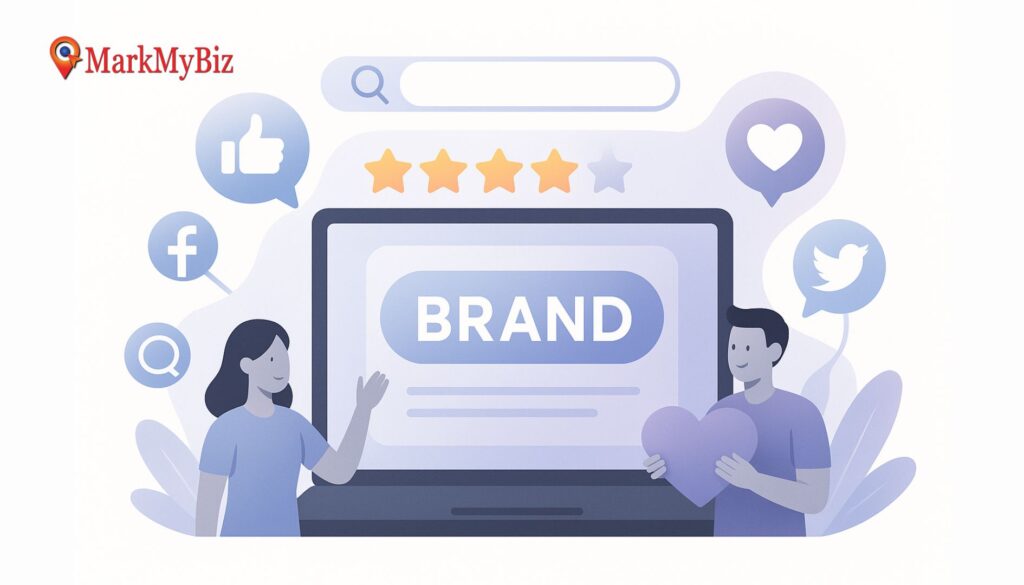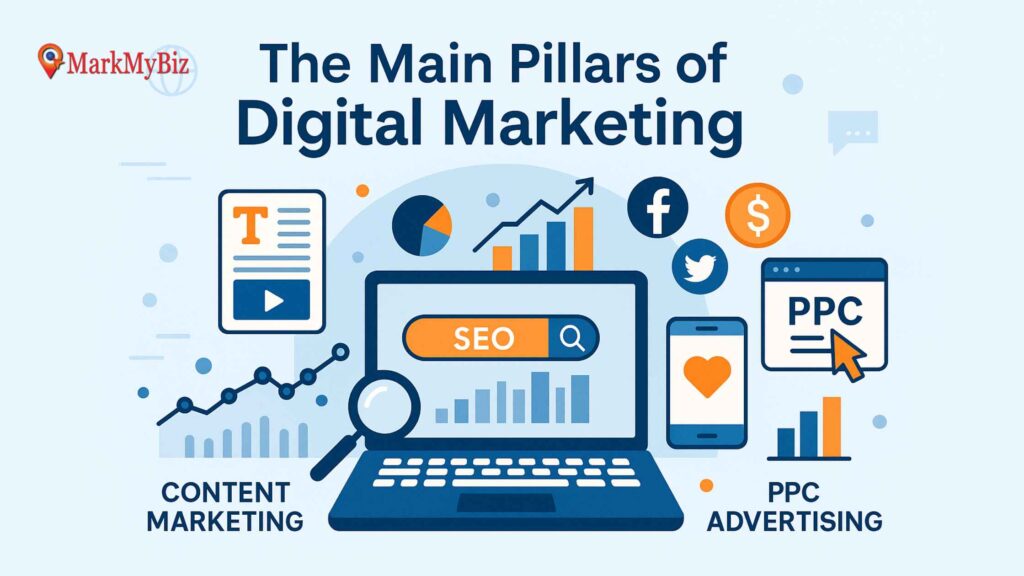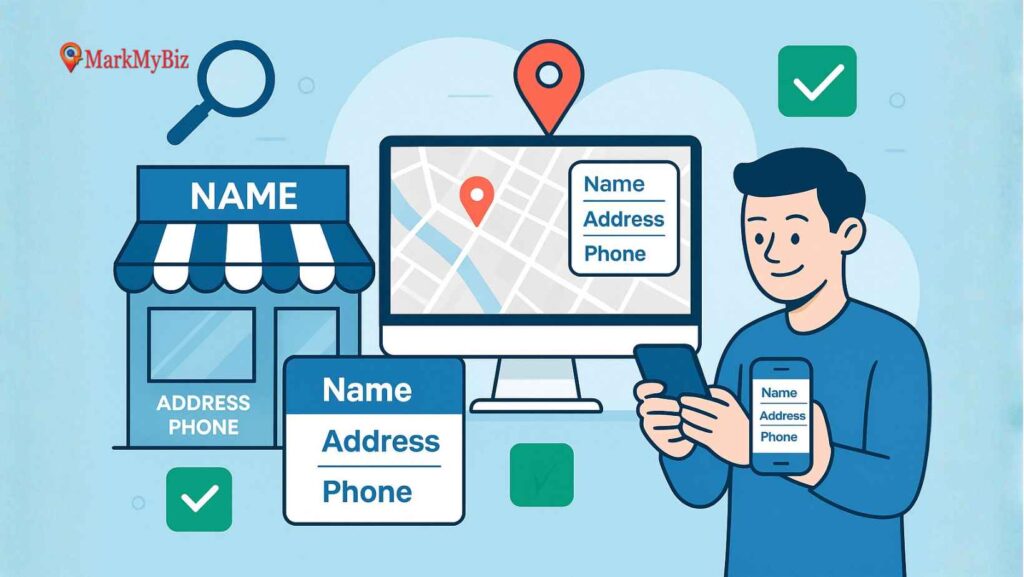In today’s digital-first world, a brand’s reputation is no longer built solely through word of mouth. Customers, clients, and potential leads often Google your brand name, check online reviews, and scan your social media presence before making a purchase decision. The information available online defines your credibility. This is where Online Reputation Management (ORM) steps in as a crucial component of digital marketing.
What is Online Reputation Management?
ORM, or Online Reputation Management, is the practice of monitoring, influencing, and managing how your brand is perceived online. It helps businesses maintain a positive brand image, push down negative or misleading results, optimize Google reviews strategy, and create trust with potential customers.
Unlike traditional advertising, ORM focuses on long-term credibility and brand trust instead of short-term exposure. Carefully designed ORM campaigns make sure that when someone searches your business, they find the most authentic and positive version of your brand
Why Online Reputation Management is Important for Businesses
Reputation is everything in the digital space. Here’s why brand reputation management matters:
- First impression counts: 90% of customers read online reviews before visiting a business.
- Trust influences conversions: A good reputation means higher trust, leading to better conversions and long-term retention.
- Review signals impact local SEO: Google’s algorithm gives importance to positive online reviews management for ranking local businesses.
- Crisis protection: Negative press, fake reviews, or misleading content can destroy years of brand building. A strong ORM plan helps you minimize the damage quickly.
In short, ORM safeguards both your online visibility and business credibility.
How to Handle Negative Reviews Professionally
No business can completely escape critical or negative feedback. What matters is how you respond. Here’s a professional approach:
- Stay calm, never react emotionally – Remember, future customers are reading your response.
- Acknowledge the issue – Thank the reviewer for sharing their experience.
- Offer a solution – Share a direct contact or rectify the problem publicly if possible.
- Show empathy – Avoid defensive language; show your brand values customer satisfaction.
- Encourage more positive reviews – A stream of genuine positive reviews naturally dilutes the impact of one negative comment.
A well-handled negative review can turn an unhappy customer into a loyal one, and it also builds credibility for others reading your responses.
Best Practices to Push Down Negative Results on Google
Sometimes, negative articles, misleading public complaints, or outdated news could surface on the first page of Google when someone searches your brand. To manage this:
- Create fresh, positive content – Blog posts, PR articles, guest features, and social media updates.
- Optimize branded keywords – Publish pages that target “[Your Brand] reviews,” “[Your Brand] services,” etc.
- Leverage local SEO – Work on Google Business Profile, add updated photos, and request reviews from real customers.
- Backlink strategy – Build links to your positive pages to improve their ranking over harmful results.
- Content diversification – Use varied formats like videos, podcasts, and infographics featuring your brand story.
By pushing negative results down on Google, you ensure your target audience sees trust-focused and conversion-driven content first.
ORM vs SEO: Differences and How They Work Together
Many confuse ORM and SEO, but they are complementary, not interchangeable.
- SEO (Search Engine Optimization): Focuses on improving visibility for relevant keywords, driving organic traffic to a website.
- ORM (Online Reputation Management): Focuses specifically on brand-related queries and shaping perception through positive content and reviews.
Relationship Between ORM and SEO:
- SEO brings traffic; ORM ensures this traffic finds trustworthy brand content.
- SEO handles keyword intent; ORM manages brand credibility signals like reviews and mentions.
- Together, they maximize conversions and ensure a positive digital brand presence.
Tools for Tracking Brand Mentions and Sentiment
Effective ORM in digital marketing depends on constant monitoring. Here are some widely used tools:
- Google Alerts – Free tool to track brand mentions across websites.
- Brand24 / Mention – Real-time monitoring for online mentions and reputation analytics.
- Hootsuite / Sprout Social – Track social media sentiment and customer interaction.
- SEMrush Brand Monitoring – SEO tool with ORM integration for keywords and branded mentions.
Using these tools helps businesses ensure no harmful mention or negative customer feedback is left unmonitored.
How to Build Positive Content for Brand Queries
To manage your online reviews strategy and reputation, you need a system of positive visibility:
- Publish educational blogs and guides highlighting your expertise.
- Share case studies and client success stories.
- Optimize Google Business Profile with updated media and business info.
- Encourage satisfied clients to leave authentic online reviews.
- Share testimonials, podcasts, and expert interviews with your brand.
The more positive content you generate, the harder it becomes for negative mentions to influence potential customers.
Steps to Create a Reputation Recovery Plan
If your brand has already faced reputation challenges, here’s a clear recovery plan:
- Audit your online presence – Identify negative results, reviews, and outdated mentions.
- Remove harmful pages if possible – Use removal requests where legally applicable.
- Launch positive PR campaigns – News mentions, guest posts, and collaborations.
- Strengthen review management – Encourage loyal customers to share feedback.
- Monitor progress – Check rankings monthly for improvement.
Consistency and patience are key. Rarely does ORM show overnight results, but within weeks and months, businesses see significant improvement with steady action.
How ORM Impacts Conversions and Lead Generation
A strong reputation directly influences your sales funnel:
- Positive reviews boost buyer confidence.
- Strong branding lowers hesitation and shortens decision cycles.
- For service businesses, ORM strongly impacts lead quality.
- For e-commerce, product reviews determine repeat purchases.
Consumers trust brands with better ratings and fewer unresolved complaints, meaning ORM contributes directly to revenue growth.
Local SEO and Reviews: Improving Brand Reputation
For small and regional businesses in India, local SEO and ORM go hand in hand.
- Focus on Google reviews strategy – More mentions, star ratings, and frequent updates improve your local ranking.
- Add location-based keywords – Ex: “Best digital marketing agency in Dehradun” signals both relevance and trust.
- Regularly update your Google Business Profile with new services, photos, and posts.
- Engage with customer feedback publicly to reassure the local audience that you value relationships.
This localized ORM strategy ensures higher visibility and trust within your specific market.
Build Your ORM with MarkMyBiz – Best Digital Marketing Agency in Dehradun, India
Effective online reputation management is no longer optional—it’s a necessity. From online reviews management to Google reviews strategy, ORM shapes how your brand is seen by potential customers and directly impacts leads, conversions, and long-term trust.
At MarkMyBiz, we specialize in crafting tailored ORM strategies for Indian brands. Whether you need to recover from negative mentions, strengthen local SEO through review management, or build powerful positive content that showcases your expertise, our team ensures measurable results.
Build your reputation with MarkMyBiz – the best digital marketing agency in Dehradun, India, and safeguard your brand image while driving sustainable growth.











